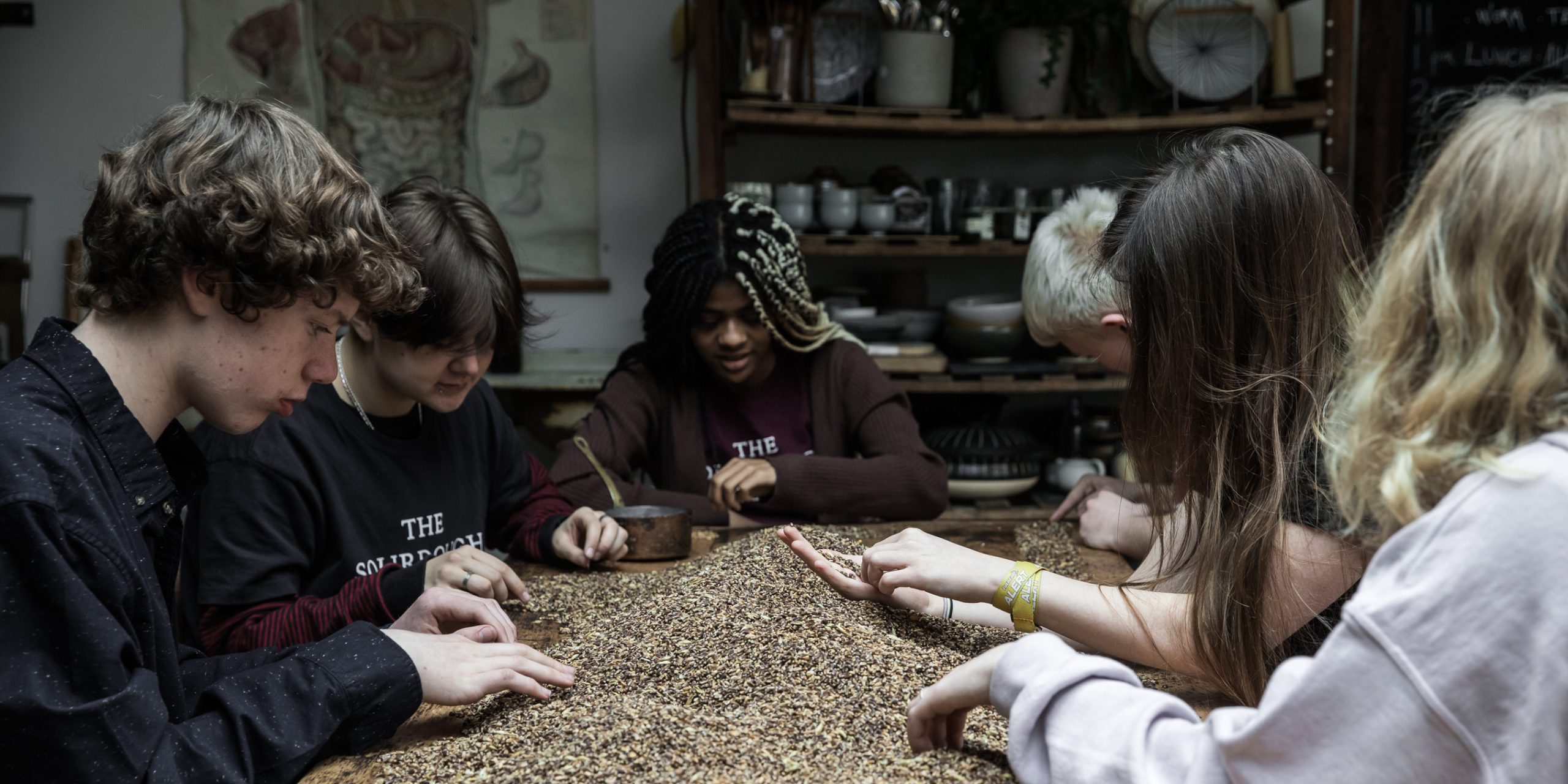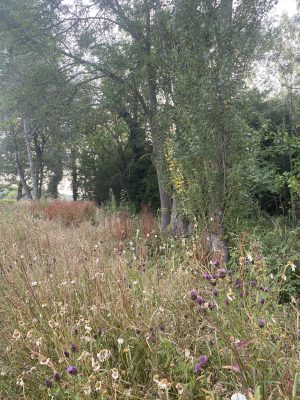
The current system
We’ve been working on something for many years. We’ve been reimagining grain as a high polyphenol diversity population grain for social equality.
At this point in time, we’ve got a global mass of monoculture. This is the enemy of both the macro and the microenvironment. If you look at the macro environment, monoculture is actually destroying it – it’s reductionist, and single-species grain is vulnerable to pests, diseases and climate change, reducing soil microbial diversity. The way in which we’re growing is heavily reliant on the petrochemical industry and herbicides that destroy biodiversity. It is an unsustainable agricultural practice. This underpins a food system that deprives our microbiomes of what they need, which is diversity. Our choice of grains is also lacking in levels of different phytochemicals, and through current bread-making practices, we miss out on the bioavailability of these, even if they were available in the bread, e.g. if the bread has been made with wholegrain that has natural anthocyanins.
Our population wheat has been designed really an example of how we can redesign the system for ground-level system change while still maintaining the yield, which is absolutely essential to delivering the level of tonnage per hectare to challenge the monoculture with a realistic alternative.
The Importance of Diversity in the BALM Protocol
Through the work, we’ve done at The Sourdough School on the BALM Protocol over the years, one of the main understandings we’ve reached about the gut microbiome is the importance of phytochemicals, in particular polyphenols including anthocyanins, in nourishing the gut. Here are four of the major positive ways in which we can improve gut health:
- Delivering high levels of fibre – so whole grains are essential
- Delivering a diversity of phytochemicals – this is actually one of the main reasons we’ve created a diverse population of wheat because all of the different colours and phytochemicals within this wheat actually nourish different microbes within the gut. The wider the level of different phytochemicals, the wider the nourishment of different microbes, so the more diverse your gut microbiome is, the more robust your health is. This is the key understanding about the gut microbiome
- delivering high levels of polyphenols – these anthocyanins have a very positive impact in terms of delivering high polyphenols to the gut. This is the reason for the high complexity of different colours – those dark blues, blacks, purples and dark browns within the population wheat
- increasing the bioavailability of all these fibres and antioxidants – this is delivered through sourdough fermentation. While these studies are still in vitro, Vanessa attributes much of the improvement we’ve seen in both physical and mental health to this transformation. We still have more work to do on this, and we still need more research in this area, but this is something we are working on in real-time.
 Challenging Monoculture with the population of High polyphenol wheat
Challenging Monoculture with the population of High polyphenol wheat
One of the biggest challenges to changing the current agricultural system of monoculture is to create a conventional population of wheat but also to simultaneously create a diverse conventional wheat with great bread-making properties, which also have high colour pigments, as explained above. This underpins the second principle of the BALM Protocol: creating bread with as much diversity as possible. That diversity has to come not just from the Botanical Blends (milling the whole meadow and including in our bread all of the amazing diversity of grains and phytochemicals, including from flours, herbs and seaweed) but also from the population wheat itself.
We must really look at systems change in a way that involves maximising yield, as in conventional agricultural systems, but with incredibly low-input and sustainable regenerative farming practices. This would make this grain and this approach to grains into a realistic alternative way of looking at how we grow our wheat globally.
The Sourdough School Population Wheat & Barley
Higher levels of beneficial phytochemicals: The principle of delivering more polyphenols in BALM protocol
Vanessa has a long-standing collaboration with wheat breeder Dr Phil Howell and the pre-breeding programme based at NIAB, Cambridge. Dr Howell has worked privately with Vanessa, incorporating diversity through grains gifted to Vanessa from Sourdough School students around the world, including grains from USA, India, Iran and Saudi Arabia, and is now exploring some of the pigmented types within NIAB’s section of the BBSRC-funded ‘Designing Future Wheat’ programme. Vanessa is now working on scaling up an exciting wheat blend made up of several new crosses that combine the rich diversity of these different sources with the proven qualities of leading UK bread-making varieties.
Mixed barley population: gifted by Dr Ed Dicken
Black wheat
One of our students gifted us some black high-anthocyanin wheat, which we are growing here as the dark wheat has a good antioxidant content. Higher levels of these phytochemicals are key to the prevention of lifestyle disorders such as obesity and cardiovascular diseases, and they also nourish key microbes in the gut associated with health. We’ve planted two crops this year, one winter and one summer, to see how they fare. Watch this space.

